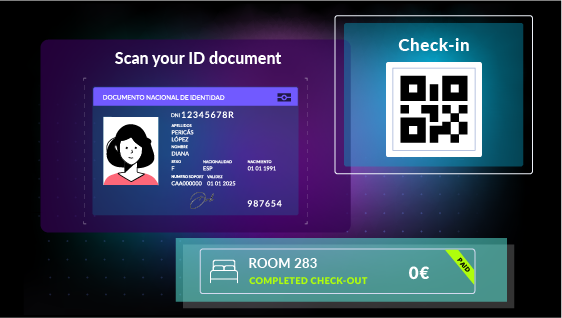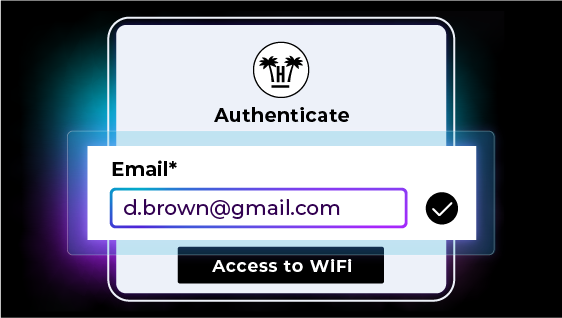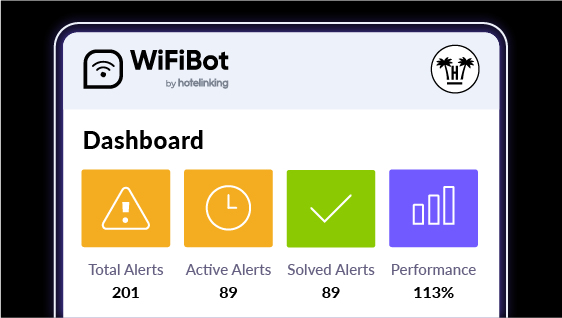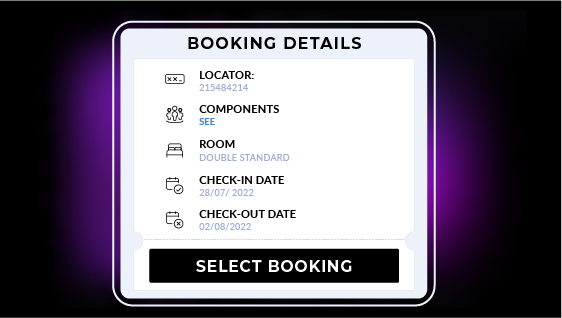
Email Marketing Guide: How to analyse the results of a hotel email marketing campaign (I)
Analysing the results of email marketing campaigns is one of the top priorities when implementing a digital marketing strategy.
Metrics are key since we obtain valuable information with them that will tell us if the goals have been achieved. While all this information indicates what has worked or has not, it also offers data to optimise future campaigns and maximise results.
Several indicators allow us to measure the results of an email marketing campaign but, depending on factors such as the company’s sector, some KPIs or others will be considered. In the hotel sector, the primary metric is the number of reservations generated.
How to know whether good reservation results are being obtained or not
The analysis should show the total number of reservations that have been diverted to the direct channel of customers who, in previous stays, booked on one or more occasions through commissioned channels.
The resulting number of disintermediated reservations must go together with the total amount of revenue generated. To calculate the total savings resulting from disintermediation, a percentage equivalent to the average value paid for the commissions must be applied.
This percentage will vary depending on whether we are dealing with an urban or holiday hotel or chain. Generally speaking, in urban hotels the percentage to be applied will be similar to that applied by OTAs, while in holiday hotels the percentage will have to be weighted according to the weight of TTOOs and OTAs.
As a reference, for urban hotels the percentage to be applied can be set at 18 % while, in holiday hotels with a high TTOO component, the percentage to be applied can be set at 30 %.
Suppose you do not work with technology specifically designed for the hotel sector. In that case, it will be difficult to obtain an analytical table that allows you to measure the total amount of savings resulting from disintermediation and demonstrate the success of the email marketing campaign.
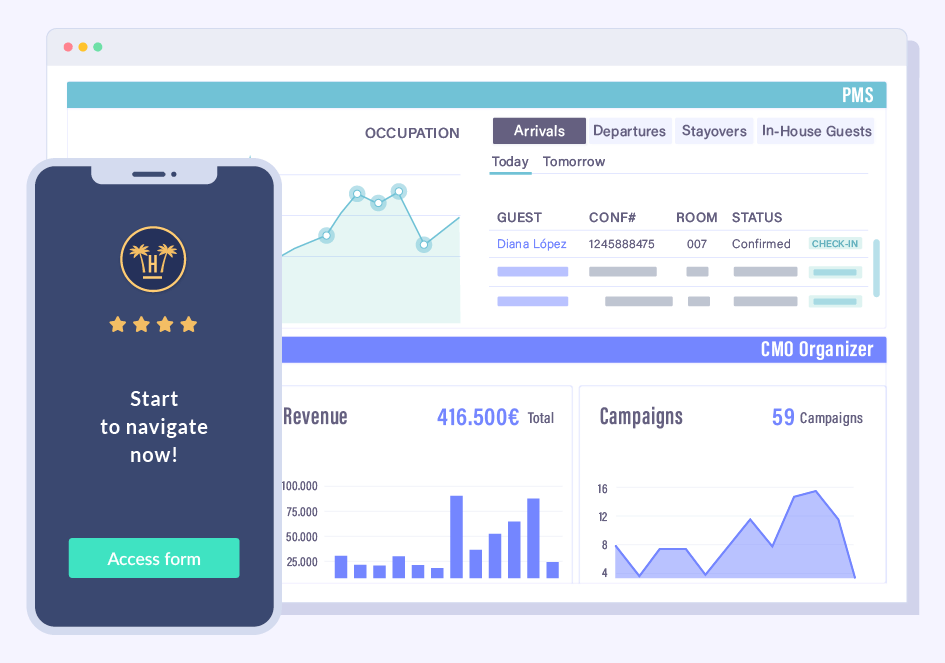
Essential tools to measure KPIs
Integration with the booking engine
The main function is to track the reservations generated by the customer in the direct web channel, after sending email marketing campaigns to customers who stayed previously.
Whenever an email marketing campaign is sent from the CRM there is the possibility of adding a Google Analytics UTM to measure the success per campaign. But adding the UTM (always advisable) is not enough since it only shows the total value of the reservations and revenues achieved per campaign, but does not allow to trace the reservation with each guest in the hotel CRM. It is essential for several reasons:
- Disintermediation analysis: in the hotel CRM, thanks to the tracking integration with the booking engine, it is possible to view the new reservations obtained thanks to the email marketing campaigns drawn against each guest. The main utility of this feature is that it will also be possible to know which channel each guest had previously booked through. In this way, it is possible to easily detect those users who had previously booked through commissioned channels. An adequate integration with the hotel or chain PMS will allow to automatically add transactional fields (reservation channel, room type, board type …) to the profile of each guest in the hotel CRM.
- Exclude guests who have recently booked from the next email marketing campaigns: not having an integration between the booking engine and the CRM prevents the automated traceability of each new reservation obtained with the guest. It is of the utmost importance that the information is added and consolidated in the hotel CRM since it is the tool specifically designed to establish advanced database segments.
An advanced hotel CRM has the specific functionality that allows you to exclude from future campaigns guests who have recently booked or with customisable seniority.
In this way, if, for example, a “Black Friday” campaign has been sent and 200 guests have booked, they should not receive a “Cyber Monday” campaign shortly after, in addition to the subsequent campaigns planned in the following 2 or 3 months.
A generic CRM that is not integrated with the booking engine does not have the information or features necessary to segment such a particular casuistry, which is necessary to avoid that guests who have managed to build loyalty through the direct channel end up unsubscribing from future communications. You have to look after the database so that guests book year after year.
Overexposing guests who generate reservations to offers and campaigns, usually results in undesired unsubscription from future communications.
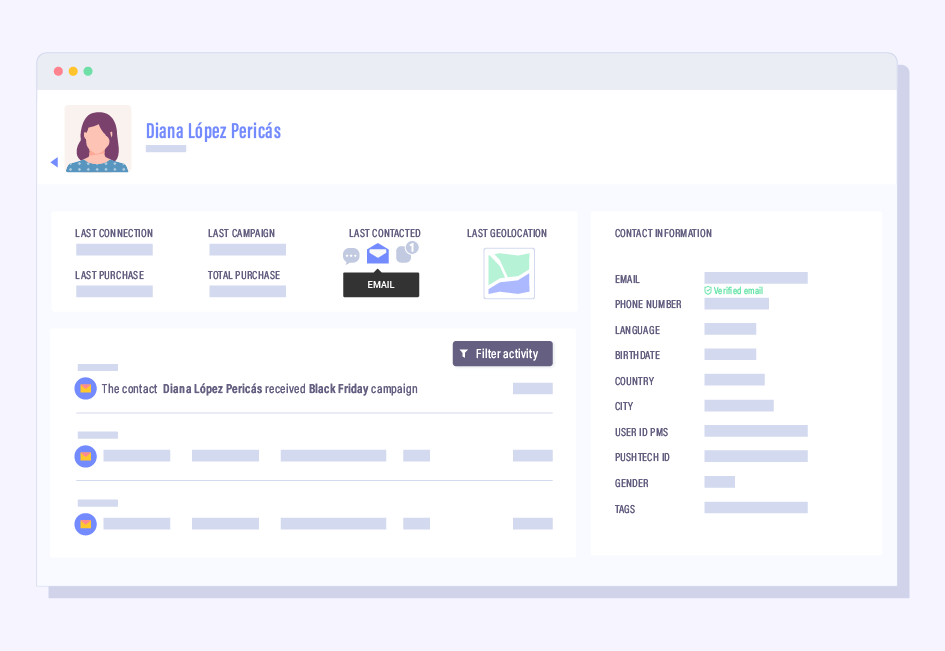
Integration with PMS
The PMS gathers transactional data of each guest valuable for an advanced email marketing strategy. The more useful data can be collected from different information silos, the more segmentation capacity will be obtained and the greater degree of personalisation can be achieved with the different communications and email marketing campaigns.
But without a doubt, the booking channel is the transactional data with the most value to analyse the effectiveness of the email marketing strategy and disintermediate new bookings from repeat guests.
The integration with the booking engine allows to connect the reservations generated in the direct web channel with each existing profile in the CRM and the data integration with the PMS allows to reveal exactly how many reservations have been disintermediated from the total.
Hotel CRM
If it is well designed and adapted for the hotel sector, the CRM should present, for each campaign sent, indicators not only on the rates of opening, click, or rebound, but indicators of the total reservations obtained, in addition to the total value of the same in the desired currency.
Generalist or traditional CRMs are not specifically designed to show return analysis for the hotelier and, therefore, it will be difficult to assess whether profits are being made with disintermediation efforts.
In addition to campaign analysis, a professional hotel CRM will be able to offer a detailed analysis of reservation per guest. It is of the utmost importance that the specific data of each reservation generated by the disintermediation campaign is perfectly traced with each guest. Otherwise, the analysis of the savings by disintermediation would not be performed correctly.
In the following article we will explain how to read and analyse what happens on our website and the evolution of marketing actions from Google Analytics.


